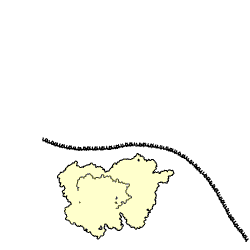Most of our current knowledge about gene regulation is based on studies of mRNA levels, despite both the greater functional importance of protein abundance, and evidence that post-transcriptional regulation is pervasive. However, understanding the molecular basis of regulatory variation within and between species may prove very useful. Indeed, the majority of identified human disease-risk alleles lie in non-coding regions of the genome, suggesting that they affect gene regulation. Until recently, the lack of performant high-throughput methods for detecting protein abundance hampered the in-depth study of gene regulation. However, a new method known as ribosome profiling has enabled us to study divergence in the regulation of translation.
Ribosome profiling or ‘riboprofiling’ involves the construction of two RNA-seq libraries: one measuring mRNA abundance (the ‘mRNA’ fraction), and the second capturing the portion of the transcriptome that is actively being translated by ribosomes (the ‘Ribo’ fraction). This way, actively translated transcripts can be sequenced and identified.
Advantages of ribosome profiling
- Study active mRNA translation with sequencing
- Sequence ribosome-protected mRNA
- Predict protein abundance
- Investigate translational control
- Measure gene expression
- Rapid, scalable spin-column method
- Compatible with yeast and mammalian samples
Ribosome profiling workflow
From the cell lysate we isolate both a total RNA fraction as well as a Ribosome Protected Fragments (RPF) fraction using an in-house developed protocol for human/mouse/rat. The RPF fraction contains the mRNA with bounded ribosomes. After purification of both fractions, cDNA sequencing libraries are constructed. These are quality checked before being sequenced on one of our Illumina sequencers. The technical quality of the sequencing run is monitored in real time.
Sequencing data can be transferred to you via the Illumina BaseSpace platform or our own server (FTP download).
Feel free to contact us with any questions.

